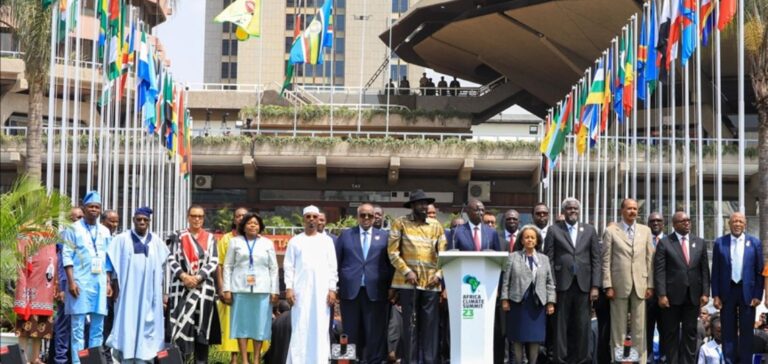At the close of a historic summit on Wednesday, African leaders called on the international community to help them realize the continent’s potential in the fight against global warming, through green investment and reform of the international financial system.
Africa Aims for a Green Future: Calls for Investment in Renewable Energies
The aim of the first African Climate Summit was to highlight untapped resources for renewable energies, to enable African countries to develop economically while helping to combat global warming, of which they are one of the main victims.
“Africa has both the potential and the ambition to be an essential part of the global solution to climate change”, say the participants in their joint final declaration, dubbed the “Nairobi Declaration”.
But to unleash its potential “on a scale that can make a significant contribution to decarbonizing the global economy” will require a marked increase in financing, they argue. In particular, they are calling for “a new financing architecture adapted to Africa’s needs, including debt restructuring and relief”, the burden of which weighs heavily on their economies.
23 Billion Dollars Pledged for Africa at Climate Summit
A total of $23 billion (21.3 billion euros) in international investment was also pledged during the three-day summit, said William Ruto, including $4.5 billion (4.1 billion euros) from the United Arab Emirates for clean energy in Africa.
– “Common position” – This Nairobi Declaration, “unanimously adopted” according to African Union Commission Chairman Moussa Faki Mahamat, “will serve as the basis for Africa’s common position in the global climate change process up to COP28 and beyond”, say the signatories.
This is “a clear affirmation of Africa’s determination and leadership on climate issues, in line with the ambitions and priorities of the COP28 presidency”, said the president of the UN climate conference (COP28), Sultan Al Jaber, in a statement.
Africa: A Pillar of the Alternative to Fossil Energy in the World
The Nairobi summit opened four months of international meetings on climate issues, continuing this weekend with a G20 summit in India and culminating in COP28 in Dubai at the end of November, which promises to be a heated battle over the end of fossil fuels.
Consensus is no easy task on a continent of 1.4 billion people living in 54 politically and economically diverse countries, with some governments campaigning for a renewable energy future while others depend on their fossil fuel resources.
With its youthful population and vast natural resources, Africa argues that it is essential to building an alternative to polluting fossil fuels.
In addition to its natural potential for directly generating clean energies (solar, wind, geothermal…), the continent is also home to 40% of the world’s cobalt, manganese and platinum reserves, essential for batteries and hydrogen fuel cells.
Call to Polluting Countries: Africa Awaits $100 Billion Promise
In their joint communiqué, the participants affirmed their determination to increase, with the help of the international community, its renewable energy production capacity from 56 gigawatts in 2022 to at least 300 gigawatts by 2030.
– “Level playing field” – The challenges remain immense in a continent where 500 million people have no access to electricity. In particular, African countries are crippled by their growing debt burden.
On Tuesday, several of the continent’s leaders, as well as Antonio Guterres and Emirati President Sultan al Jaber, called for reform of the international financial system – a system that the UN chief described as “outdated, unfair and dysfunctional” – to adapt it to the demands of the fight against global warming.
“We demand a level playing field so that our countries can access the investment needed to unlock their potential and translate it into opportunity,” said William Ruto.
The African leaders also called on wealthy polluting countries to honor their commitment to provide $100 billion a year in climate finance to the poorest countries by 2020.
Why does it matter?
The African Climate Summit underlines the importance of Africa in the fight against climate change. Calls for investment and financial reform aim to unlock the continent’s renewable energy potential and overcome its energy challenges.
This will have an impact on future global climate negotiations and on Africa’s role in the transition to a green economy.






















